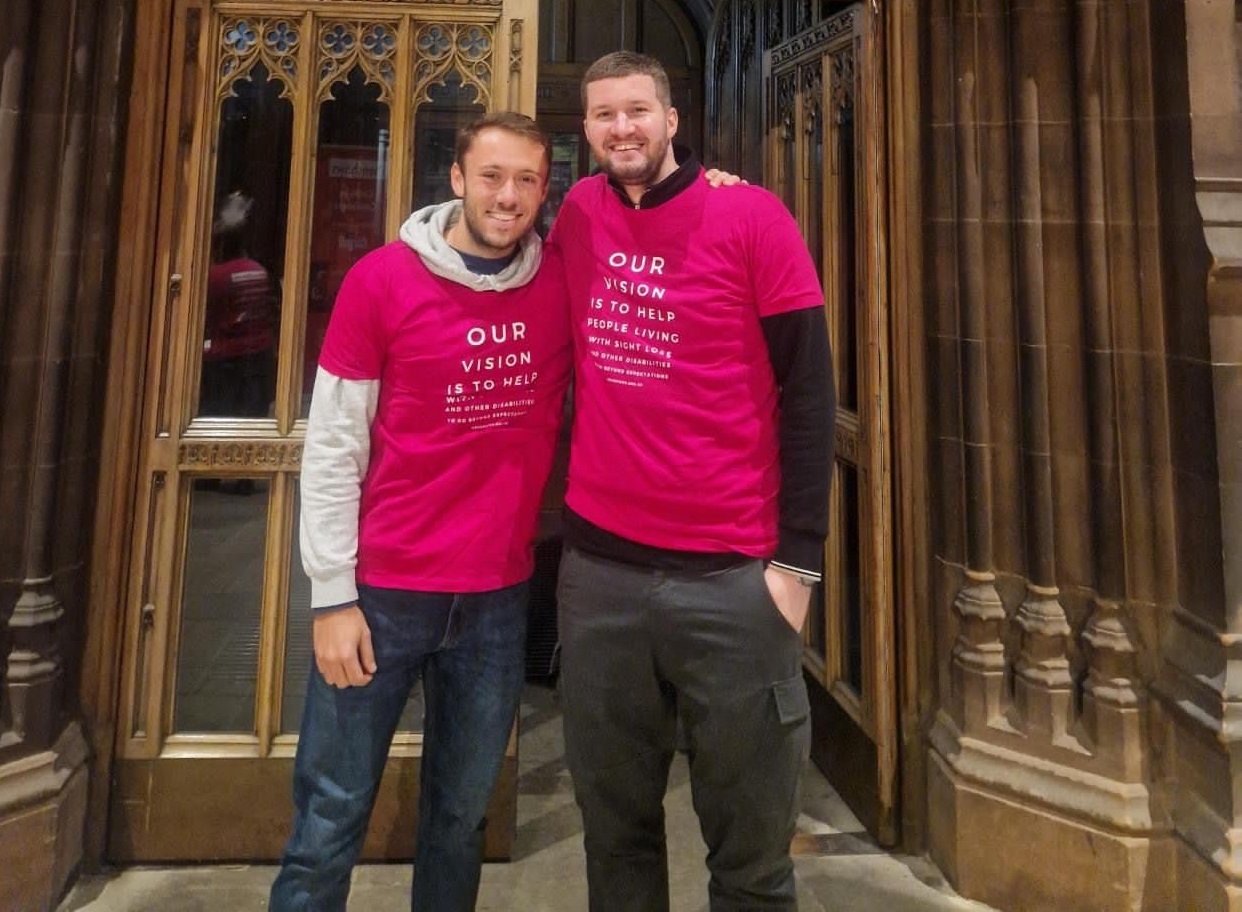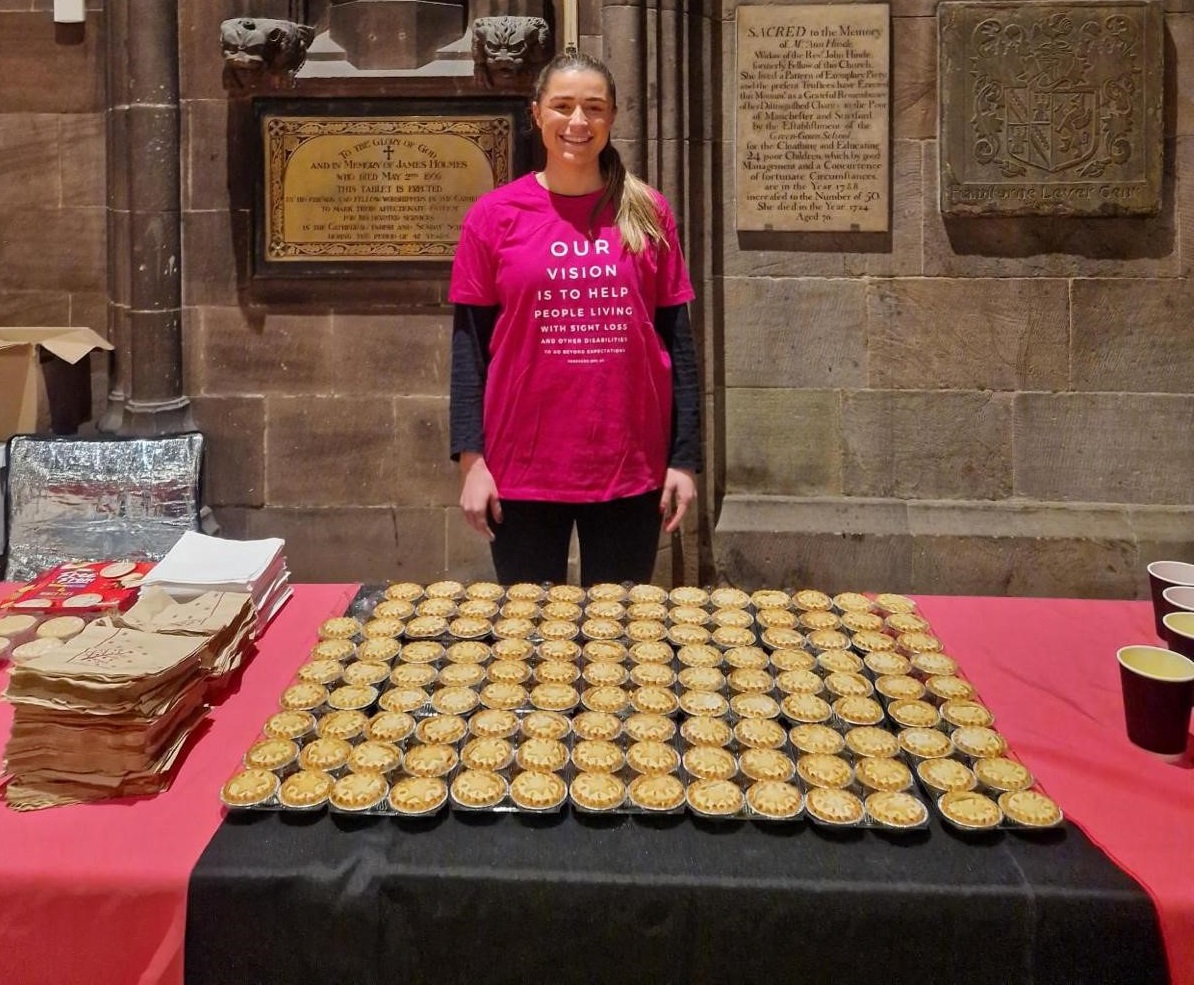Quick CV Dropoff
Send us your CV to be considered for one of our open roles

The success of a company is no longer solely measured by profit margins; in fact, it’s becoming increasingly important to focus on the positive impact the business can have on the society in which it serves.
As a business, we continuously strive to become more socially responsible, and one powerful avenue is through our partnerships with multiple charities. And, while financial donations are undoubtedly valuable, there’s a realm of support beyond monetary contributions that businesses can offer to amplify the efforts of organisations.
As part of our ‘Power of a partnership’ series, we spoke to the team at Henshaws, a charity supporting people living with sight loss and a range of other disabilities to achieve their ambitions and go beyond expectations.
The team spoke openly about how business support can completely change the game for charities like Henshaws, the challenges they face and what initiatives they have coming up.
Henshaws is probably the oldest charity in the North (having celebrated our 187th anniversary this year), and some of the service users that we support have been with us for 60+ years. To put this into perspective, we had a service user who joined when she was 13 years old and at the age of 104 she has just joined our Digital Training Course to help her use her mobile phone more effectively, and have the knowledge to be able to download applications onto it.
I truly believe that Henshaws is about what people can do and not what people can’t. We help anyone, of any age, that has a sight impairment/sight loss, from the moment of their diagnosis. Our team receive referrals from Manchester Royal Eye Hospital and within 2 weeks of an individual receiving their sight loss certificate, our First Steps Team make contact to refer them to internal and external departments where they will be offered support. This same level of support could take anything up to 12 months with other services.
Henshaws also hold community groups where individuals can meet their peers, who truly understand what they are going through. These groups help to stop feelings of isolation and lifelong friendships are made. This means they have someone to speak with outside of those meetings, which is amazing.
Last year alone, we supported over 6,000 visually impaired people in the North of England, which wouldn’t have been possible without the generous help we received, as 90% of funding is through donations within our communities.
The individuals we support, the positive impact Henshaws makes to those with sight loss and other disabilities, and the partnerships built with those who support our cause. Without that support we wouldn’t be able to continue with the wonderful work we do.
The main challenge is income, which is incredibly difficult for all charities at the moment, the cost-of-living crisis has made it harder for individuals to support their chosen charities. Also, Covid-19 had an impact in relation to grant and foundation funding. Before the pandemic, there weren’t as many charities applying for a grant, however now the number of applications has increased so the competition is much harder. Also, the criteria on applications has changed, they now assess our impact on the environment, and the level of income the charity raises each year, which may result in Henshaws not being able to apply.
Henshaws is so lucky to have the incredible support from business charity partnerships. This includes volunteering, sponsorship of an event or donating a piece of equipment, and all alongside general donations.
A nice example of a partnership came when our Children and Young People’s Team were organising their annual Christmas party but unfortunately an application for the funding was declined, and it was a possibility that the event would be cancelled. I contacted Michael Josephson MBE who organises a large charity ball in Manchester each year to ask if he was able to help. Within half an hour, Michael got back in touch to say he would sponsor the whole event, which was absolutely amazing and ultimately meant that this event could still go ahead as planned.
Partnerships are not just about financial support; they also involve voluntary opportunities, donation items and so much more. Without the incredible volunteers from companies like Sellick Partnership some events would not be as successful as they are. With the support of Sellick Partnership at our Carols by Candlelight Event at Manchester Cathedral, we raised £10,000, which is incredible and shows the true power of a partnership.

Whilst I was on LinkedIn, I saw the incredible support Sellick Partnership was offering to other local charities. I was so impressed that I connected with Laura Hayward (Board Sponsor for the CSR Committee). From there we have built a fantastic working relationship. I shared with Laura that a true partnership is not just about how the business can support the charity, it’s also about how the charity can support the business, that is what forms a perfect and productive partnership.
It’s not just about a donation, or a gift in kind, or volunteering for that matter – it’s also the expertise that can be shared. For example, our Marketing team has a company that ‘donate’ a certain number of hours per month, to assist with our press releases and the social media side of the business.
Sustainability is very important to Henshaws, and we are not experts within this area. To help us develop a strategy, experts from businesses are offering their time which is hugely appreciated.
The way we can evidence the impact of corporate partnerships is by measuring the quantitative and qualitative outcome of the activity or service supported. We look at the outputs, outcomes and impact it has made. The way we measure that is through case studies, testimonials, and surveys of how our service users felt before and after the event or service provided.
In relation to corporate volunteering, we measure the success of the support. For example, 10 volunteers from Sellick Partnership help us at our Carols by Candlelight event and from that event we raised £10,000. We would evaluate the success of the event against previous events, which shows that the success increases with support from corporate volunteers.
Also, if professional training is offered to Henshaws pro-bono, that not only saves paying for training, but also increases the knowledge of our employees which, in turn, improves a service or they are more effective within their role. An example of this most recently was when Henshaws collaborated with St Ann’s Hospice to undertake some sales training, kindly organised by Ray Wareing, Group Director at Sellick Partnership. As a result of this training, we have been able to evaluate how we make our initial contact with new corporates and sponsors to ensure their engagement.

Find a common goal: think about what is important to you as a business. What’s important to the people that work within your business and then try and come to an agreement together. I think that really helps to build the foundations of a great relationship.
It’s thinking about the wider picture and thinking about what we need, what corporate partners can help us with, and how we can offer support to them. One thing that our team are looking to roll out is VIAT (visual impairment awareness training) to businesses which is a practical and engaging session to help people better understand the needs of people with sight loss. This training will enable businesses to make their services more accessible to people with sight loss.
Some of our management staff have just completed Social Value training, which has given us the knowledge of what is involved when completing a tender for a contract. It has also provided us with an understanding of the legislation, how it effects businesses, and ultimately how we can help to demonstrate their values, theory of change and measuring and reporting.
Supporting charities goes beyond financial donations and can take many forms. Here are a few examples of how businesses can support charities:
By engaging in these non-financial forms of support, businesses can make a meaningful difference in the work of charities and contribute to positive social impact.
To find out more about Henshaws please visit: https://www.henshaws.org.uk/